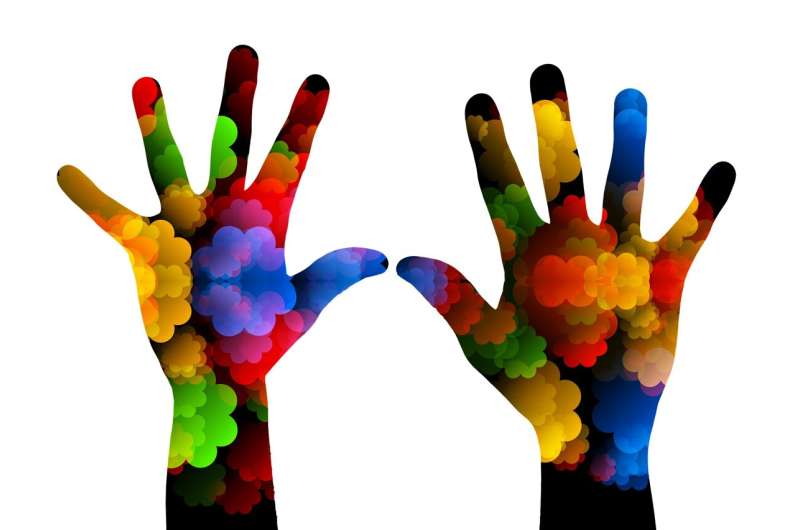This article has been reviewed according to Science X's editorial process and policies. Editors have highlighted the following attributes while ensuring the content's credibility:
fact-checked
peer-reviewed publication
trusted source
proofread
Teens engaged in activism become better critical thinkers, study finds

Youth involved in community-based activism over time become better critical thinkers and more politically active, according to a new University of Michigan study.
The study, recently published in Child Development, highlights the importance of community engagement in supporting and developing critical consciousness and social action among adolescents.
"Community-based activism serves as a key consciousness-raising system that supports youth to recognize, negotiate and challenge oppression in their lives," said Matthew Diemer, U-M professor of education and psychology. "This is politically contentious work, with a quantitative approach that is sophisticated and rigorous. We're directly paying attention to inequality instead of avoiding talking about inequality or pretending it doesn't exist.
"These settings exploit these topics with young people and foster the capacity to act on inequality. And what we see here is these young people benefit and flourish instead of being harmful or indoctrinated," Diemer added.
Over a two-year period, Diemer and colleagues analyzed three dimensions of critical consciousness—critical reflection, motivation and action—among 518 adolescents (average age: 16) from various cities across the United States. About 39% of the students identified as Latinos or Hispanics, 20% as Black or African American, 11% Asian or Asian American, 8% multiracial and 6% white.
"These adolescents came to be more critically conscious, understanding inequality better and how to take actions to remedy inequality," Diemer said. "This study helps clarify the antecedents of critical consciousness as well as its form of development to assist future attempts to facilitate youth critical consciousness."
In the past two decades, a substantial body of research has highlighted the benefits of critical consciousness for youth contending with oppression, Diemer says. These studies are based on the work of Brazilian educator and philosopher Paulo Freire, a leading advocate of critical pedagogy. He believed in the idea of critical reflection and action on the world to make it more just and equitable.
"This is the first paper showing the normal trajectory of this process among young people," Diemer said. "We don't have any research that has ever looked at that over time longitudinally, particularly among youth organizers who are already pretty active."
The findings showed some surprises. One is related to adolescents who are already critically reflective about inequality in the world and involved in activism—although there is still room for change and growth for these young activists, Diemer says.
"Despite that, they are growing because of the settings they were in and their partnerships with adults," he said. "These organizers were careful and intentional about some practices that seem to foster critical consciousness in these young people, supporting them and engaging in action in the world.
"They provided a space for discussions and reflections about inequality, without indoctrinating them or imposing views, but only to encourage and give a voice to the young people."
Critical consciousness is associated with beneficial developmental outcomes among youth. They are developing in a society often antagonistic to their healthy development, such as the lack of a social safety net and career opportunities, Diemer says.
"Our study extends the understanding of how youth develop critical consciousness within community-based activist contexts," he said. "Now, we would like to have a sense of the best practices of these organizations. We see that these settings are effective and impactful and knowing more specifically what was happening that led to that change would be next."
Co-authors include U-M graduate students Victoria Vezaldenos and Gabrielle Kubi, and recent graduates Andres Pinedo, incoming assistant professor at Vanderbilt University, and Michael Frisby, assistant professor at Georgia State University.
More information: Andres Pinedo et al, Charting the longitudinal trajectories and interplay of critical consciousness among youth activists, Child Development (2023). DOI: 10.1111/cdev.13977
Journal information: Child Development
Provided by University of Michigan



















